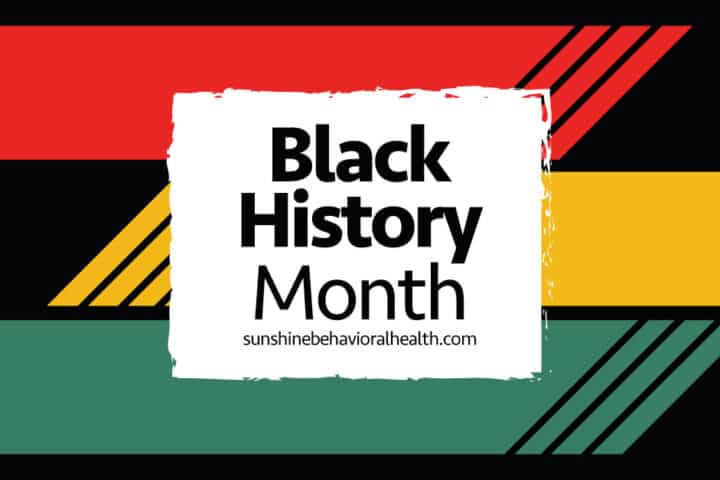
Black History Month: COVID-19 and Other Challenges
Every year, we celebrate Black History Month. But what has life really been like for Black people in the United States?
It’s been challenging.
COVID-19
While COVID-19 and pandemic have been difficult for everyone, they’ve hit Blacks and other people of color particularly hard. Among people hospitalized with COVID-19 in Atlanta, Georgia in March and April 2020, 79% were Black and 13% were white.
Experts at the Centers for Disease Control and Prevention (CDC) believe that such health-related disparities may be due to:
- Gaps in wealth, income, and education.
- Lower general health status (including tendencies of Black people to have more pre-existing conditions, for example).
- Lack of access to reliable health care.
To address these disparities, the CDC has created a toolkit that includes information on how to stay safer and learn about the latest developments surrounding COVID-19 as well as the virus and variants that cause it.
Mental health
COVID-19 has created worries about people’s health, their loved ones’ health, their finances, their children’s education, and other concerns. Mental health is closely tied with overall well-being, so it’s no surprise that COVID-19 has also had a profound impact on the mental health of Blacks and people of color.
In 2020 alone:
- Suicides of Black people increased.
- 15% of Black people reported that they seriously considered killing themselves (compared to 8% of white people).
- Four of every 10 Black people reported that they were experiencing depression or anxiety.
To understand mental health challenges and ways to treat them, there are resources available for assistance.
Racism and discrimination
One of the ways to slow the spread of COVID-19 is by wearing a protective face mask. The face masks can help people from catching the disease or spreading it if they already have it. But some people of color have been nervous about doing so because they believe people will think they’re dangerous or doing something wrong.
A June 2020 survey by the Pew Research Center found that 42% of Black respondents were concerned that other people “might be suspicious of them if they wear a mask in public.”
The murder of George Floyd and numerous other violent incidents against Black people have also highlighted racism in the United States. It’s not surprising, then, that many Blacks and other people of color are distressed.
For mental health assistance to deal with racism and other challenges, guides and other tools can provide information and helpful resources.
Economic and family concerns
Since the start of the pandemic, many black people have experienced financial and family worries.
Some people have been able to stay safer and work from home, but others can’t. One study found that “39% of jobs held by African Americans are in occupations where workers are at risk,” and noted that “52% of African American workers report that the coronavirus outbreak is a major threat to their financial situation compared with 43% of whites.”
If they continue to work, people may worry about catching COVID-19 and transmitting it to others. If they catch it, they worry that they won’t receive paid time off from work and possibly lose their jobs. People working essential jobs outside the home may find it difficult to supervise or educate children if schools have closed and gone online.
People might want to check with their U.S. states and other localities to find help for their finances and health. On the federal level, the White House has created a fact sheet that discusses initiatives and other forms of assistance that focus on the mental and physical health of children and young people.
Many Black people face pandemic-related difficulties and other challenges, but there’s assistance and hope during Black History Month and beyond.
Sources
cdc.gov – Risk of Severe Illness or Death from COVID-19
cdc.gov – Community, Work, and School
usnews.com – An Era of Peril for Black Mental Health
self.com – 44 Mental Health Resources for Black People Trying to Survive in This Country
pewsocialtrends.org – Many Black and Asian Americans Say They Have Experienced Discrimination Amid the COVID-19 Outbreak
sunshinebehavioralhealth.com – Mental Health Issues Facing the Black Community
ncbi.nlm.nih.gov – Coronavirus Trauma and African Americans’ Mental Health: Seizing Opportunities for Transformational Change
michigan.gov – Assistance for Low-Income Michiganders
whitehouse.gov – FACT SHEET: Improving Access and Care for Youth Mental Health and Substance Use Conditions
A Message From Our CEO
Medical disclaimer:
Sunshine Behavioral Health strives to help people who are facing substance abuse, addiction, mental health disorders, or a combination of these conditions. It does this by providing compassionate care and evidence-based content that addresses health, treatment, and recovery.
Licensed medical professionals review material we publish on our site. The material is not a substitute for qualified medical diagnoses, treatment, or advice. It should not be used to replace the suggestions of your personal physician or other health care professionals.





